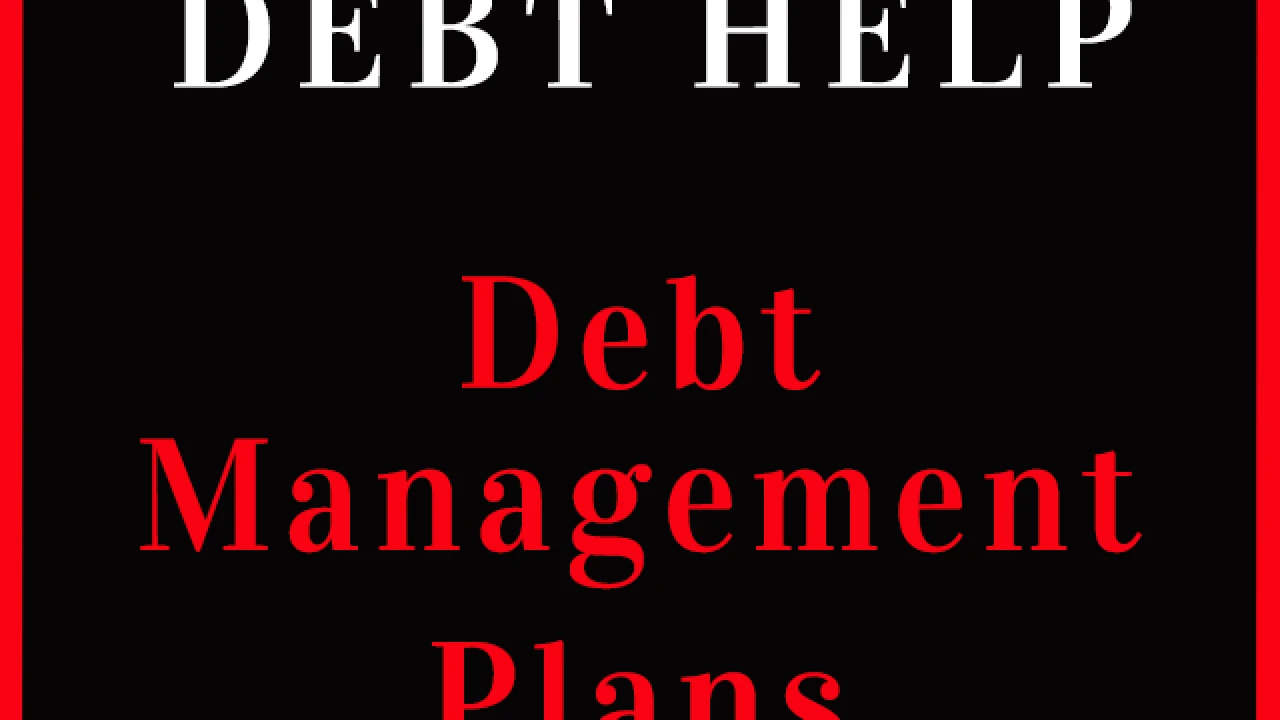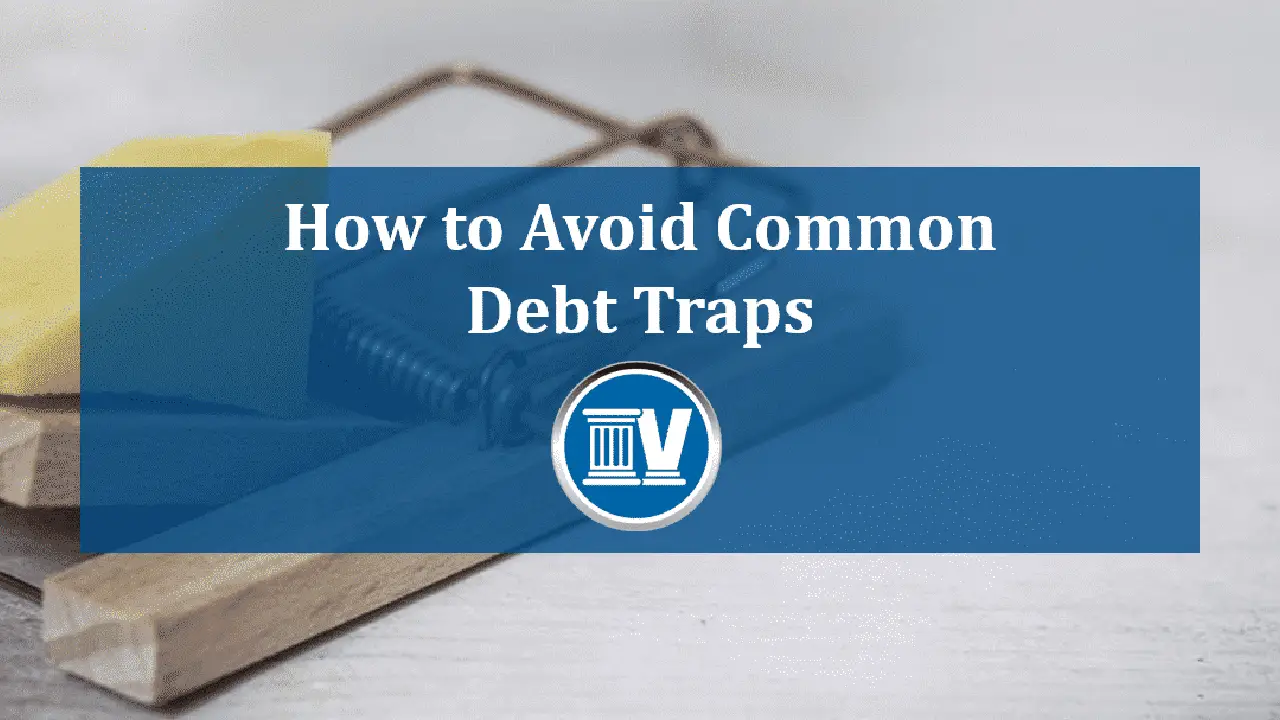Debt Management Plans Pros and Cons
Evaluate the advantages and disadvantages of debt management plans to determine if they are right for your financial situation.

Debt Management Plans Pros and Cons
Hey there! Are you feeling overwhelmed by debt? You're not alone. Millions of people struggle with managing multiple credit card payments, personal loans, and other unsecured debts. It can feel like you're constantly treading water, just trying to keep your head above the financial surface. If this sounds familiar, you might have heard about Debt Management Plans (DMPs). But what exactly are they? And more importantly, are they the right solution for you? Let's dive deep into the world of DMPs, exploring their benefits, drawbacks, and everything in between. We'll even look at some real-world examples and compare them to other debt relief options, so you can make an informed decision about your financial future.
What is a Debt Management Plan Understanding the Basics
First things first, let's define what a Debt Management Plan actually is. A DMP is a structured repayment program offered by non-profit credit counseling agencies. The core idea is to consolidate your unsecured debts (like credit cards, medical bills, and some personal loans) into one manageable monthly payment. The credit counseling agency acts as an intermediary between you and your creditors. They negotiate with your creditors to potentially lower your interest rates, waive late fees, and stop collection calls. This makes your debt more affordable and helps you pay it off faster than if you were trying to tackle each debt individually.
Here's how it typically works:
- Initial Consultation: You'll have a free consultation with a certified credit counselor. They'll review your financial situation, including your income, expenses, and all your debts.
- Budget Analysis: The counselor will help you create a realistic budget to identify areas where you can cut back and free up money for debt repayment.
- Negotiation with Creditors: The agency contacts your creditors to propose a repayment plan. Creditors often agree to DMPs because they'd rather get some money back than none at all, which could happen if you default or file for bankruptcy.
- Single Monthly Payment: Once the plan is established, you make one single, affordable monthly payment to the credit counseling agency.
- Distribution to Creditors: The agency then distributes these funds to your creditors according to the agreed-upon plan.
- Completion: Most DMPs last between three to five years, after which you should be debt-free (from the debts included in the plan, of course!).
It's important to remember that DMPs are not loans. You're not borrowing new money. Instead, you're reorganizing your existing debt with the help of a third party. This distinction is crucial when comparing DMPs to other debt relief options like debt consolidation loans.
The Advantages of a Debt Management Plan Benefits for Debt Relief
So, why would someone choose a DMP? There are several compelling advantages that make them an attractive option for many people struggling with debt:
Lower Interest Rates and Fees Significant Savings
This is often the biggest draw of a DMP. Credit counseling agencies have established relationships with creditors and can often negotiate significantly lower interest rates on your unsecured debts. Imagine going from 20% or 25% interest on your credit cards down to 8% or even 0% in some cases. This dramatically reduces the total amount you pay over the life of the debt and allows more of your payment to go towards the principal. They can also often get late fees waived, which can add up quickly.
One Simple Monthly Payment Streamlined Finances
Juggling multiple due dates and minimum payments can be incredibly stressful and lead to missed payments. With a DMP, you make just one payment to the credit counseling agency each month. This simplifies your finances, reduces the chances of missing a payment, and frees up mental energy that was previously consumed by debt management.
Stopping Collection Calls Peace of Mind
If you're behind on payments, you're likely receiving constant calls from collection agencies. This can be incredibly harassing and add to your stress. Once you enroll in a DMP, the credit counseling agency will notify your creditors, and collection calls should cease. This provides a much-needed sense of peace and allows you to focus on getting your finances back on track.
Improved Financial Habits Education and Support
A good credit counseling agency doesn't just manage your debt; they also provide financial education and support. They'll help you create and stick to a budget, understand your spending habits, and develop healthier financial behaviors. This holistic approach aims to prevent you from falling back into debt once your DMP is complete.
Avoiding Bankruptcy A Less Drastic Option
For many, a DMP is a way to avoid bankruptcy, which has a much more severe and long-lasting impact on your credit report. While a DMP does show up on your credit report, it's generally viewed more favorably than bankruptcy by future lenders.
No New Loans Required No Additional Debt
Unlike debt consolidation loans, a DMP doesn't involve taking on new debt. You're simply restructuring your existing obligations, which can be a relief for those who are hesitant to borrow more money.
The Disadvantages of a Debt Management Plan Potential Drawbacks
While DMPs offer many benefits, they're not a perfect solution for everyone. It's crucial to understand the potential downsides before committing to a plan.
Impact on Your Credit Score Short Term Effects
Enrolling in a DMP can have a negative impact on your credit score, at least initially. Your credit report will show that you are on a DMP, and some creditors may close your accounts or reduce your credit limits. This is because you're no longer making payments directly to them, and they see it as a higher risk. However, if you were already struggling with missed payments and high utilization, a DMP can ultimately help improve your score in the long run by getting you back on track.
Inability to Use Credit Cards Restrictions and Limitations
During a DMP, you'll typically be required to close all credit card accounts included in the plan. This means you won't be able to use credit cards for purchases. While this can be a good thing for breaking bad spending habits, it can also be inconvenient if you rely on credit for emergencies or everyday expenses. It requires a commitment to living on a cash-only or debit-card-only basis for the duration of the plan.
Fees Associated with the Plan Costs of Service
While credit counseling agencies are non-profit, they do charge fees for their services. These typically include an initial setup fee and a monthly administrative fee. These fees are usually reasonable, but it's important to factor them into your budget. Always ask about all fees upfront and ensure they are transparent.
Not All Debts Are Included Exclusions and Limitations
DMPs primarily deal with unsecured debts. This means secured debts like mortgages and car loans, as well as student loans, taxes, and child support, cannot be included in a DMP. If a significant portion of your debt falls into these categories, a DMP might not be the most comprehensive solution for you.
Long-Term Commitment Duration and Discipline
As mentioned, DMPs typically last three to five years. This is a significant commitment that requires discipline and consistent payments. If you miss payments or drop out of the plan, the agreements with your creditors can be revoked, and you could be back to square one with higher interest rates and collection calls.
Creditor Participation Not Guaranteed Acceptance Rates
While many creditors are willing to work with credit counseling agencies, participation is not guaranteed. Some creditors may refuse to offer concessions or participate in the plan. In such cases, you would still be responsible for paying those debts outside of the DMP, which could complicate your financial situation.
Is a Debt Management Plan Right for You Eligibility and Considerations
So, how do you know if a DMP is the right path for your debt relief journey? It's not a one-size-fits-all solution. Here are some key factors to consider:
Your Debt Type Unsecured vs Secured Debts
A DMP is most effective if the majority of your debt is unsecured, such as credit card debt, medical bills, and personal loans. If you're primarily struggling with a mortgage or car loan, a DMP won't address those specific issues.
Your Income and Expenses Ability to Pay
You need to have a stable income that allows you to make the consolidated monthly payment. While DMPs aim to make payments more affordable, you still need to demonstrate the ability to consistently meet your obligations. The credit counselor will help you determine if your budget can support a DMP.
Your Credit Score Current Financial Standing
If your credit score is already severely damaged due to missed payments and high utilization, a DMP might be a good option to start rebuilding. If your credit is still relatively good, you might want to explore other options like a debt consolidation loan first, as a DMP can initially lower your score.
Your Discipline and Commitment Personal Responsibility
A DMP requires commitment. You'll need to stick to your budget, avoid using credit cards, and make consistent payments for several years. If you're prone to impulsive spending or struggle with financial discipline, you might find it challenging to complete a DMP.
Your Desire to Avoid Bankruptcy Alternative Solutions
If avoiding bankruptcy is a top priority, a DMP can be an excellent alternative. It allows you to repay your debts in full (albeit with potentially lower interest) without the severe consequences of bankruptcy.
Comparing DMPs with Other Debt Relief Options Making the Best Choice
It's essential to understand how DMPs stack up against other common debt relief strategies. This comparison will help you choose the most suitable option for your unique circumstances.
Debt Management Plan vs Debt Consolidation Loan Key Differences
A debt consolidation loan involves taking out a new, larger loan to pay off multiple smaller debts. The goal is to simplify payments and potentially secure a lower interest rate. The main difference is that with a consolidation loan, you're taking on new debt, and you're responsible for managing that single loan yourself. With a DMP, you're not taking on new debt, and a third-party agency manages the payments to your creditors. Consolidation loans are often better for those with good credit who can qualify for low interest rates, while DMPs are often a better fit for those with fair to poor credit who might not qualify for a good consolidation loan.
Debt Management Plan vs Debt Settlement Understanding the Risks
Debt settlement involves negotiating with creditors to pay back a portion of what you owe, typically a lump sum, and having the remaining balance forgiven. While this can result in paying less than the full amount, it comes with significant risks. Debt settlement can severely damage your credit score, lead to tax implications on the forgiven debt, and often involves stopping payments to creditors, which can result in collection calls and lawsuits. DMPs aim to repay the full principal amount (plus reduced interest) and are generally less damaging to your credit than debt settlement.
Debt Management Plan vs Bankruptcy Last Resort Options
Bankruptcy (Chapter 7 or Chapter 13) is a legal process that can discharge some or all of your debts. It provides a fresh start but has the most severe and long-lasting impact on your credit report (up to 10 years). It can also involve losing assets. A DMP is a less drastic measure that allows you to repay your debts and avoid the stigma and long-term consequences of bankruptcy.
Debt Management Plan vs DIY Debt Payoff Strategies Personal Approach
Many people try to pay off debt on their own using strategies like the debt snowball or debt avalanche method. These are excellent approaches if you have the discipline and can secure lower interest rates on your own. However, if you're struggling to negotiate with creditors, manage multiple payments, or stick to a budget, a DMP offers the structure and professional assistance that DIY methods lack.
Choosing a Reputable Credit Counseling Agency Important Considerations
If you decide a DMP is right for you, choosing the right credit counseling agency is paramount. Not all agencies are created equal, and unfortunately, some predatory companies exist. Here's what to look for:
Non-Profit Status Verification and Trustworthiness
Always choose a non-profit credit counseling agency. These agencies are typically accredited by organizations like the National Foundation for Credit Counseling (NFCC) or the Financial Counseling Association of America (FCAA). Their primary goal is to help you, not to make a profit.
Certified Counselors Expertise and Qualifications
Ensure the agency employs certified credit counselors. These professionals have undergone training and certification to provide sound financial advice. Don't hesitate to ask about their credentials.
Transparent Fees Clear Cost Structure
A reputable agency will be completely transparent about all fees upfront. They should clearly explain any setup fees and monthly administrative fees. Be wary of agencies that charge exorbitant fees or are vague about their pricing structure.
Educational Resources Support and Guidance
Look for an agency that offers more than just debt management. They should provide educational resources, budgeting tools, and ongoing support to help you develop better financial habits for the long term.
Positive Reviews and Reputation Client Feedback
Check online reviews and ratings from organizations like the Better Business Bureau (BBB). A strong positive reputation is a good indicator of a trustworthy agency.
Recommended Credit Counseling Agencies and Their Offerings Top Providers
While I can't endorse specific companies, I can highlight some well-regarded non-profit credit counseling agencies that often receive positive feedback and adhere to industry best practices. Remember to always do your own research and due diligence before committing to any service.
National Foundation for Credit Counseling (NFCC) Member Agencies
The NFCC is a leading non-profit financial counseling organization. They don't directly offer DMPs, but they accredit and support a network of member agencies across the US. When you choose an NFCC member agency, you can be confident that they meet high standards of quality and ethics. Many of these agencies offer DMPs, financial education, and housing counseling. You can find a local NFCC member agency through their website. Their services are generally affordable, with fees typically ranging from $0-$50 for setup and $0-$75 for monthly administration, depending on your state and income.
GreenPath Financial Wellness Comprehensive Support
GreenPath is a well-known and highly respected non-profit credit counseling agency. They offer a wide range of services, including DMPs, housing counseling, student loan counseling, and bankruptcy counseling. They are known for their personalized approach and extensive educational resources. GreenPath is an NFCC member. Their DMP fees are competitive, often with a low or no setup fee and monthly fees around $30-$50, varying by state.
Money Management International (MMI) Extensive Reach
MMI is another large and reputable non-profit credit counseling agency. They provide DMPs, budget counseling, housing counseling, and student loan counseling. MMI has a broad reach and offers services nationwide, often with convenient online and phone consultations. They are also an NFCC member. MMI's DMP fees are similar to GreenPath's, typically with a modest setup fee and monthly administrative fees in the $30-$50 range.
Consolidated Credit Solutions Free Resources and DMPs
Consolidated Credit is a non-profit organization that offers free credit counseling and DMPs. They focus on helping consumers get out of debt and improve their financial literacy. They are also an NFCC member. Their DMP fees are generally very competitive, often with a low setup fee and monthly fees that are among the lowest in the industry, sometimes as low as $25-$40, depending on your specific situation and state regulations.
American Consumer Credit Counseling (ACCC) Personalized Plans
ACCC is a non-profit credit counseling agency that provides personalized debt management plans and financial education. They emphasize a tailored approach to help individuals achieve financial stability. ACCC is also an NFCC member. Their fee structure is typically transparent, with setup fees and monthly administrative fees that are competitive within the non-profit sector, often in the $30-$50 range.
When considering any of these agencies, always remember to:
- Verify their non-profit status and accreditation.
- Ask for a clear breakdown of all fees.
- Understand the terms and conditions of the DMP.
- Ensure you feel comfortable and confident with the counselor you're working with.
Real-World Scenarios When a DMP Shines Practical Applications
Let's look at a few hypothetical situations where a DMP could be an excellent solution:
Scenario 1 The Credit Card Carousel
Sarah has $15,000 in credit card debt spread across four different cards, with interest rates ranging from 18% to 24%. She's making minimum payments, but the balances barely budge. She's constantly stressed about due dates and feels like she's drowning. Sarah contacts a credit counseling agency, and they negotiate her interest rates down to an average of 8%. Her monthly payment drops from $600 (minimums) to a consolidated $400, and she's projected to be debt-free in 4 years, saving thousands in interest. The single payment and reduced interest provide immense relief.
Scenario 2 The Medical Bill Mountain
Mark recently had an unexpected medical emergency, leaving him with $8,000 in medical bills that his insurance didn't fully cover. He also has a few thousand dollars in older credit card debt. The medical providers are calling constantly, and he's worried about his credit. A DMP allows him to consolidate both the medical bills and credit card debt into one payment. The agency negotiates with the medical providers to accept a structured payment plan, and the collection calls stop, giving Mark peace of mind while he focuses on recovery.
Scenario 3 The Budget Buster
Emily earns a decent income, but her spending habits have led to $10,000 in unsecured personal loan and credit card debt. She knows she needs to change but struggles with budgeting and impulse control. A DMP provides the external structure she needs. The credit counseling agency helps her create a strict budget, and the inability to use credit cards during the plan forces her to live within her means. The regular check-ins with her counselor also provide accountability, helping her build healthier financial habits.
Maximizing Your DMP Success Tips for a Smooth Journey
If you decide to move forward with a DMP, here are some tips to ensure you get the most out of it and successfully become debt-free:
Stick to Your Budget Financial Discipline
The budget created with your credit counselor is your roadmap to success. Adhere to it strictly. Every dollar saved is a dollar that can go towards your debt or building an emergency fund post-DMP.
Avoid New Debt No More Borrowing
This is critical. Do not open new credit accounts or take on new loans while on a DMP. The purpose of the plan is to get you out of debt, not deeper into it. Resist the temptation to use credit, even for emergencies. That's what your emergency fund is for (or should be for).
Communicate with Your Agency Open Dialogue
If your financial situation changes (e.g., you lose your job, get a raise, or have an unexpected expense), communicate immediately with your credit counseling agency. They may be able to adjust your plan or offer additional guidance.
Build an Emergency Fund Financial Safety Net
While on a DMP, prioritize building a small emergency fund, even if it's just $1,000. This will prevent you from relying on credit cards if an unexpected expense arises, which could derail your plan.
Stay Educated Continuous Learning
Take advantage of the financial education resources offered by your agency. The more you learn about personal finance, the better equipped you'll be to manage your money responsibly after your DMP is complete.
Monitor Your Credit Report Regular Checks
Even though you're on a DMP, it's still important to monitor your credit report regularly. Ensure that creditors are reporting accurately and that no new unauthorized accounts have been opened. You can get free copies of your credit report from AnnualCreditReport.com.
Ultimately, a Debt Management Plan can be a powerful tool for regaining control of your finances and achieving debt freedom. It offers structure, reduced interest rates, and professional support, making the daunting task of debt repayment much more manageable. However, it requires commitment and a clear understanding of its implications. By carefully weighing the pros and cons, comparing it to other options, and choosing a reputable agency, you can determine if a DMP is the right step on your journey to a healthier financial future.
:max_bytes(150000):strip_icc()/277019-baked-pork-chops-with-cream-of-mushroom-soup-DDMFS-beauty-4x3-BG-7505-5762b731cf30447d9cbbbbbf387beafa.jpg)






